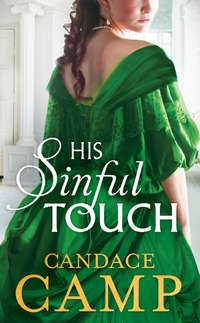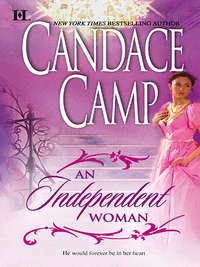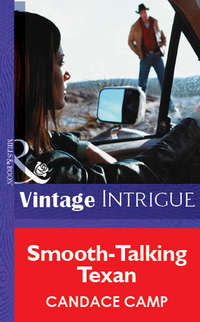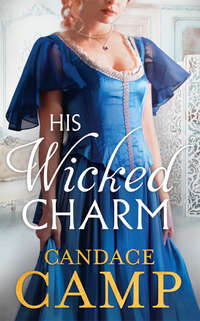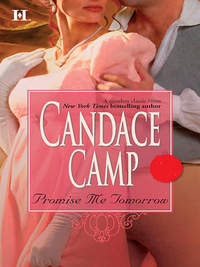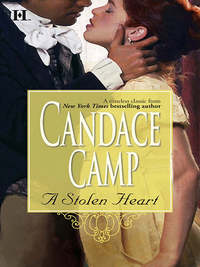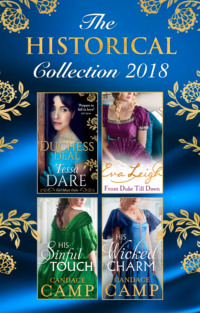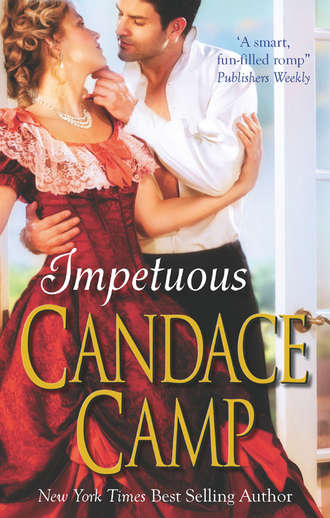
Полная версия
Impetuous
She tried to ignore the way her heart pounded in her chest as they strolled through a vine arbor and out into the less formally restrained yard at the rear of the gardens. “My name is not Moulton,” she began.
“I beg your pardon. I had thought, since your aunt’s name was Moulton—”
“Of course. But she is the wife of my mother’s brother.”
“I see. Then I am afraid you have the advantage of me. What is your name?”
Her courage failed her at the last minute, and she said only, “Cassandra.”
“Cassandra!” Amusement lit his eyes, and Cassandra noticed that in the sunlight they looked more gold than brown. “A rather gloomy name to put on a child, isn’t it?”
“I don’t know. Perhaps Papa and Mama thought it would give me prophetic powers. Papa was in his Greek period then, so I suppose that I am lucky that they didn’t decide to name me Persephone or Electra.”
“Mmm. Quite true.” He looked much struck by the thought.
“Of course, my brothers and sister call me Cassie. That’s not so bad.”
“Neither is bad. I assure you, I didn’t mean that. Cassandra is a lovely name. It is just not—”
“I know. The sort of name most people would inflict on a baby.”
He smiled faintly. “I wouldn’t have put it quite that way.”
“Only because you are too polite.”
“And was your father in his ‘Greek period’ when your brothers and sister were born?” he asked delicately.
Laughter bubbled up out of Cassandra’s throat, a delicious sound that Sir Philip found sizzled along his nerves. “You mean, are they named Ajax, Agamemnon and Demeter?”
“Precisely.” His eyes twinkled down at her.
“My sister’s name is Olivia. That is close, I suppose. It comes from Latin, does it not? But I think he had left that phase by the time the twins were born. Their names are Crispin and Hart. Not exactly Ned or Tom, but at least they are not classical.”
“No. Proper British names, both of them.”
They were nearing the maze, and Cassandra nodded toward it. “Would you like to go in the maze? I explored it yesterday and worked it out. There is a lovely fountain in the center.”
Philip thought of wandering through the high green walls of the maze with Cassandra, alone in its quiet seclusion, and his loins tightened. “Yes,” he replied a little huskily. He cleared his throat. “It sounds delightful.”
“It is nice—though it’s not terribly difficult. The one we had at home was dreadfully complicated. It was easy to get lost in it, even for us. Once, when Hart and Crispin were little, they went in, and it took us hours to realize where they were. Papa threatened to close it off, but I persuaded him merely to block the entrance until they were older.”
She did not add that in the past few years the maze had been let go; the once-trimmed shrubs had in many places grown together, with grass and even weeds cropping up everywhere. They had not had the money to continue to pay a gardener to keep it in proper form.
“Where is your home?”
“In the Cotswolds, near Fairbourne. Actually, we live with Aunt Ardis now, since Papa died. It’s not far away from our home, but we do miss it.” She smiled, her jaw setting in a determined way. “But our circumstances are about to change, and then we will be able to go home again.”
They turned into the maze and began to follow its twistings and turnings. The air was still within its corridors, and hushed, with only the occasional twittering of a bird. Enclosed by the high, waxy green walls, it seemed almost as if they were in a different world from the rest of the estate. They walked silently for a time, both of them loath to disturb the hush.
But when they were deep within the maze, Cassandra drew a deep breath and looked up at Sir Philip earnestly. “I did not tell you my last name.”
“No, so you didn’t.” He had noticed the omission and wondered at it. Now his curiosity grew even stronger.
“Well, as I said, I am not a Moulton. That was my mother’s name. My name is Verrere.”
He stopped abruptly, startled, and looked at her. His eyes grew a little wary, and he said in a soft voice, “Ah...a faithless Verrere.”
Cassandra planted her hands on her hips and glared at him. “A ruthless Neville,” she responded.
For a long moment they simply stood, looking at one another. Finally Sir Philip started forward again, saying only, “And what does a Verrere want with a Neville?”
Cassandra cast about in her mind for exactly the right words to say. She had been waiting for this moment for months now. It was the only opportunity she was likely to have, and she had to get it right.
“I know that our families have for some years now been, well...”
“Enemies?” he suggested.
“I would say that enemies is rather a strong word to use,” Cassandra demurred. “It has been over a hundred years since a Verrere or Neville tried to kill each other.”
“Mmm. A remarkable achievement.”
At one time the two families had, indeed, been constantly at the point of drawing swords. Any comment by a Neville about a Verrere was immediately interpreted to be a deadly slur and vice versa. Over the years the hard enmity between them had declined to a social one-upsmanship, with each striving to outdo the other in terms of parties, carriages and racehorses. During this century, even that degree of rancor had died down, so that hostesses became able to invite a Neville and a Verrere to the same function without fearing that neither would ever speak to her again.
Cassandra suspected that the intense rivalry had diminished largely because the Verreres’ fortunes had declined, while the Nevilles’ had kept on growing, as always. The Verreres had simply been unable to compete any longer in any comparison of possessions or parties, leaving them with little to lord over the Nevilles except the Verrere title, Chesilworth. Indeed, during Cassandra’s father’s lifetime, the Verreres had retired from the lists, socially speaking. Cassandra’s grandfather had long ago had to sell the London house to pay debts, and the expense of clothes and rent for a London season was beyond them. Her father, Rupert, had been a bookish man, anyway, and he had been more pleased than not to give up the season in London each year. He had preferred to spend what money he had on his books and art.
“I trust that you are not so narrow-minded as to hold my name against me,” Cassandra continued, looking up at Philip challengingly.
His mouth quirked sardonically. “I was taught as a child that if I was bad, the Verreres would get me. However, I do trust that I will be able to hold my own against this particular Verrere.”
“I have come for your help, not to fight.”
His brows soared. “My help? A Verrere asking a Neville for help?”
Cassandra frowned. “Do you plan to continue playing the fool in this fashion? I came to this house party specifically to talk to you, but I can see that I have wasted my time if you are unable to drop your petty prejudices long enough to listen.”
He could not help but grin at her tart words and tone. “I beg your pardon, Miss Verrere.” He pulled his face back into somber lines. “I will endeavor to be serious, since my levity displeases you. However, I have to tell you I find it bizarre that a Verrere would even think of asking me for help, let alone believe that I would be willing to extend that help.”
“Well, as for your helpfulness, I have no way of knowing that, of course. But I would hope that you are a reasonable enough man to see that it would be profitable for both of us.”
“I am afraid you have lost me before we have even started. What would be profitable?”
“That is what I am about to tell you. Ah, here is the center of the maze. Isn’t it a tranquil spot? Why don’t we sit down on the bench, and I will explain myself?”
“By all means.”
Neville politely dusted off the bench with his handkerchief, and they sat down. They looked at each other assessingly. Finally Cassandra began. “I am searching for the Spanish dowry.”
Neville gazed back at her blankly. “The what?”
Cassandra frowned. “Surely you have heard of it. It was what started the whole bitterness between our families.”
Late in the seventeenth century, the Nevilles and Verreres had decided to ally their families by marriage. Sir Edric Neville was contracted to marry the daughter of Richard Verrere, Lord Chesilworth. The girl’s name was Margaret, and she, rather than marrying Sir Edric, had stolen out of the Neville estate on the eve of her wedding and run off with the man she truly loved. It had been a scandal of immense proportions, heightened by the fact that the substantial dowry which she had brought to the Nevilles was missing, as well. The incident had set the two families at odds for the next two hundred years.
“You mean Black Maggie’s dowry?” Philip exclaimed.
She gave him a disapproving look. “If you mean Margaret Verrere, then, yes, it is her dowry I am speaking of. A collection of Spanish treasure seized by Colin Verrere in the late sixteenth century.”
Philip snorted. “Stolen, you mean. Colin Verrere was an out-and-out pirate.”
“He sailed with letters of marque from Queen Elizabeth herself,” Cassandra retorted hotly. “He was a patriot, as well as an excellent sailor and fighter.”
“Legalized piracy. I suspect that the Spanish sailors he killed had some difficulty telling the difference.”
“It was a war,” Cassandra reminded him coldly. “Spain was our enemy, and any damage done to her economy was a blow for England and the queen.”
“Yes, and was it not convenient that Lord Chesilworth’s own pockets were so well-lined by his ‘patriotism’?”
Cassandra regarded him with irritation. “I fail to understand why an Englishman should have so much sympathy for a country that tried to invade his own.”
Neville shrugged. “I have no particular love for Spain, Miss Verrere. However, I do believe in telling the truth, rather than masking ordinary, everyday greed with a patina of ‘God, queen, and country.’”
She looked at him for a long moment. “Frankly, Sir Philip, I think it is more that you simply enjoy being difficult.”
Her words startled a chuckle from him. “Perhaps you are right.” He paused, then added, “It doesn’t matter, anyway. There is no dowry. It is only a legend.”
“A legend! Of course it’s not a legend. The Spanish dowry was real. Why else would your Neville ancestor have pursued the matter so assiduously in and out of court? Why did he keep insisting that the dowry by rights belonged to him, if there was not really a dowry?”
“Oh, I grant you that Chesilworth had some jewels and things that his grandfather took from Spanish ships, but the size and value of it has been greatly increased by the years and distance from the actual thing. Who is to say that the dowry was that valuable, and who is to say that Chesilworth even really sent the dowry with his daughter? It could have been an elaborate ruse to defraud Sir Edric.”
“Oh, poppycock!” Cassandra said bluntly, color flaring in her cheeks. “I have read the list recorded in the Verrere estate books when they loaded the trunk into Margaret’s baggage train. Unset emeralds and rubies from South America, gold coins, gold jewelry, emerald earrings—and, the pièce de résistance, the most beautiful and precious piece of treasure—a ‘solid gold leopard of cunning workmanship with eyes of emeralds and a collar of rubies.’”
Cassandra’s eyes glistened as she thought of the stunning beauty of the statue. “It was a work of art, as well as being of great monetary value. It was the crown jewel of Colin Verrere’s Spanish collection.”
“If the treasure was actually loaded into the baggage train and sent to Haverly House with Margaret Verrere,” Sir Philip said firmly, “then Black Maggie took the dowry with her when she ran away. Sir Edric obviously did not have it, or he would not have pursued Chesilworth so about it, and Chesilworth claimed that he did not have it. So either Chesilworth was lying, and she left it with him all along, or Black Maggie took it with her to help set up herself and her lover in the colonies.”
“Would you stop calling her that? Margaret Verrere was not a thief, and she did not take the Spanish treasure with her. She left it behind at the Neville estate when she eloped.”
Sir Philip gave her an odd look. “You speak as if you knew the woman. She has been dead for at least a hundred and fifty years.”
“One hundred and fifty-five, to be exact,” Cassandra corrected him. “But I do feel as if I know her. You see, I have been reading her diaries.”
There was a moment of stunned silence. Sir Philip stared at her.
“This tale grows more fantastic by the moment,” he said at last. “Miss Verrere, if that really is your name, I am beginning to get the feeling that someone has set me up for an elaborate jest.”
“Really, Sir Philip.” Cassandra looked at him with aggravation, the same look she bent on her brothers when they had been misbehaving and which generally had the effect of making them suddenly stand straighter. Unfortunately, it seemed to have little effect on Philip Neville. “You are the most suspicious human being I have ever had the misfortune to meet. First you don’t believe that a dowry, which is recorded in ledgers and which one of your own ancestors pursued with great diligence all his life, ever really existed. Then you don’t believe that it was actually delivered to the Neville estate. Now you are saying that you do not believe that I am who I say I am. I don’t understand. Are you this suspicious by nature, or have you met so many liars and cheats that you are a sadly disillusioned man?”
Neville grimaced. “I am suspicious of your story, my dear lady, because it is a highly unbelievable tale. As for the so-called Spanish dowry, I am simply saying that it happened so long ago, and so many stories have been spread about it, that we really have no way of telling what is the truth.”
“But we do. That is what I am trying to tell you, if you would only pay attention. I am in possession of Margaret Verrere’s diaries.”
“How did you come to acquire these diaries?” Neville settled his hands, crossed in his lap, the expression on his face that of one who is preparing to hear a long and entertaining story.
“From Mr. Simons. Perryman Simons—he is a book dealer in London. He sold the diaries to my father. Probably you were not aware of it, but my father, the late Lord Chesilworth, was intensely interested in the stories of the Spanish dowry all his life.”
“I had heard it was a...a continuing passion with him.”
“From the studiously impassive expression on your face, I assume that you heard he was obsessed on the subject. Cracked, I believe is the common vernacular.” She shrugged. “Pray do not bother to spare my feelings. I am not a woman of high sensibility. Besides, I have heard it all before, and probably worse. But whatever people might have said about my father, he was an intelligent man, a scholar. He based his reasonings on sound facts, not wishful thinking. Of course, he also had access to the family records and the stories that had been handed down from generation to generation. He knew that Margaret Verrere was not the sort of woman to take the dowry with her. The Verreres have always prided themselves on their honor, you see.”
“A thing that Margaret seems to have forgotten when she broke her marriage contract and left Sir Edric standing at the altar.”
“She was in love with another!” Cassandra flared. “She had every right to marry the man she loved instead of being forced into a loveless marriage simply for the sake of family alliances. Sir Edric may have been wealthy and powerful, but everyone knows how the Nevilles acquired their money and influence—they have a history of ruthless, insensitive, predatory behavior, and doubtless Sir Edric was like all the rest of them.”
“Yes, a far cry from looting Spanish shipping, as the first Lord Chesilworth did,” Neville countered sardonically.
“Colin Verrere was a man of action, true.” Cassandra drew herself up as straight and tall as she could, glaring at the man sitting on the opposite end of the bench. “But he was also the Queen’s man, fighting the Queen’s enemy. It was a code of loyalty and honor he followed. The Verreres, at least, have never been powermongers, doing whatever it took to acquire land and money, with no regard for anyone else. They did not amass a fortune in land during the Middle Ages by waging war on everyone whose land they coveted. They did not dwell at court, currying every favor they could from the king.”
“You are implying that the Nevilles did?” Sir Philip sprang to his feet, his eyes suddenly flaming with a hot, gold light. “That they made their money off the sorrows of others, from dishonorable conflicts? From gifts from kings? The Nevilles have always been shrewd. But they did not act without honor, and it was more often they whom the king asked for money than the other way around. They were good warriors, that is true, and I am proud of that fact. But they did not fight without just cause. They invested their money where it would bring them more and did not fritter it away on dubious works of art or fantastic parties or architectural conceits.” He looked pointedly at Cassandra. “The Verreres are dreamers—feckless and generally incapable of making an intelligent business decision.”
“As if that were all that was important in life!” Cassandra retorted, her eyes flashing. “Yes, the Verreres were dreamers. Still are dreamers. There is nothing wrong with dreaming. It is dreamers who build empires and create masterpieces. Verreres are scholars, and they are interested in things of beauty more than in the price of tea or tobacco.”
“Ah, but the prices of tea and tobacco are useful things to know if one wants to continue to be able to spend one’s money on beautiful things.”
Cassandra’s cheeks colored. Obviously he knew about her family’s straitened financial circumstances. No doubt her father’s poor investments in various marvelous inventions and enterprises had been the gossip of the town. “No doubt you are right,” she said in a tight voice. “But scholarly enthusiasm and business acumen do not seem to run together.”
Neville sighed, his anger slipping away. His irritation with Cassandra had led him to say something far blunter than was polite. Of course he knew about poor old Chesilworth’s idiotic business schemes and their failures, but he would not normally have been so boorish as to shove that knowledge in the man’s daughter’s face.
“Forgive me,” he said quickly. “I did not mean—”
Cassandra sighed. “Of course you did.” She looked Philip in the eye. “I know my father was not good with money. Neither was my grandfather. It is obvious, after what has happened to the Verreres over the years. You are right. A love of beauty and scholarship do not bring in money. But still...” she squared her shoulders proudly “...I would never have wished for my father to be any other way. He was a fine man, and I loved him very much.”
“He was a fortunate man to have a daughter such as yourself.”
Cassandra smiled faintly. “I hope he thought so.”
“I am sure he did. Everyone knows that Chesilworth was a family man.”
“Yes. He did love us.” Cassandra swallowed, blinking away the sudden tears that threatened at the thought of her father. “I’m sorry. I am afraid that I still miss him very much.”
Sir Philip moved uncomfortably. “Forgive me. I—”
Cassandra shook her head, smiling. “No. It is I who must apologize, for straying from the subject. We were discussing the journals.”
“Ah, yes, the journals.” The faintly sardonic look returned to Sir Philip’s face, but he took his seat beside her on the bench again. “Of course.”
“They are the journals which Margaret Verrere kept all her life after she ran away to America. There were seven of them in all, and Mr. Simons sold them to my father not long before...before his death.” Cassandra did not see fit to add that her father had spent more money than they could afford in order to acquire the journals, leaving them in even worse financial shape when he died. Cassandra had perfectly understood his reasons for doing so. “Unfortunately, Papa did not get to read a great deal of the journals before he was taken ill. His lungs were always weak, I’m afraid. After—well, afterward, I read the journals.” She squared her shoulders, seeming to thrust sorrow behind her, and leaned forward eagerly. “In them, Margaret said that she left the dowry at the Neville estate. Not only that, she left instructions on how to get it. If we work together, you and I can find the Spanish dowry.”
Chapter Three
CASSANDRA GAVE A triumphant smile and leaned back, waiting expectantly.
Sir Philip gazed back at her shining eyes, and after a long moment, he said carefully, “Miss Verrere, don’t you find it a trifle...convenient, shall we say, that these lifelong journals of a woman who lived in the colonies should now turn up here in England?”
Cassandra sighed. “I was afraid that working with a Neville would be like this. Have you no adventurous spirit? No interest in a treasure hidden for generations?”
“I have no interest in fairy tales,” he retorted flatly. “Really, Miss Verrere...surely you can see that this is a hoax. The journals—after all these years—happen to turn up in England, even though they’ve been in the United States all this time. And they happen to fall into the hands of Mr. Simons, who happens to be your father’s favorite book dealer. I am sorry, but you are asking me to suspend disbelief a trifle too much.”
Cassandra took a firm grip on her temper, reminding herself that she had known what it would be like to try to convince a Neville of her plan. She had hoped that Sir Philip would be less stodgy than his father, Sir Thomas, had been reputed to be. Cassandra’s father had, by turn, characterized that man as a “dull dog” and a “cold fish.” Certainly Sir Philip’s entrance into her room last night had been anything but dull, and she had hoped that it had indicated a more adventurous character, but it was clear to her now that his was a typical Neville mind.
Pleasantly, she explained, “I don’t find it at all odd. Mr. Simons said that an American, a descendant of Margaret Verrere’s, had brought the journals to him. The man is a merchant who sometimes sails to England on business, and when he decided to sell the journals, which had been kept in his family all this time, he thought that since Margaret was from England, the books would fetch a better price here than in America. Americans, I believe, haven’t as much respect for old things.”
“Mmm. No doubt they haven’t the imagination or the adventurous spirit for treasure hunting, either.”
Cassandra frowned repressively and went on. “Mr. Simons was not the only book dealer this man went to. He tried several. But Simons, you see, was more interested than the others simply because he was Papa’s book dealer. He knew that Papa would want to buy the journals, given his interest in Margaret and the dowry. So Mr. Simons was willing to buy the journals when other dealers were not.”
“Miss Verrere, I think it is much more likely that this Simons fellow or some crony of his made the journals himself, knowing that he would be able to sell them to your father.”
“Sir Philip!” Cassandra looked shocked. “Perryman Simons is a reputable London book dealer. My father traded with him many times in the past. Mr. Simons would not have tried to sell him a forgery! And even if he had, why would he put in all those things about the dowry? That makes him no money.”
“No? Tales of a hidden treasure doubtless made the journals easier to sell. I’ll warrant that he charged your father a hefty sum.”
“It was rather large,” Cassandra admitted reluctantly. “But these are historical documents of great significance to my family. Papa would have bought the journals even if there had been no reference to the dowry.”
“The dealer could not be sure of that. Miss Verrere, I am afraid that your father and you were the victims of an unscrupulous hoax.”
Cassandra’s mouth twisted in exasperation. “I hate to think what must have happened in your life for you to have become such a cynic.”


